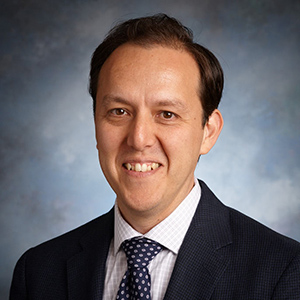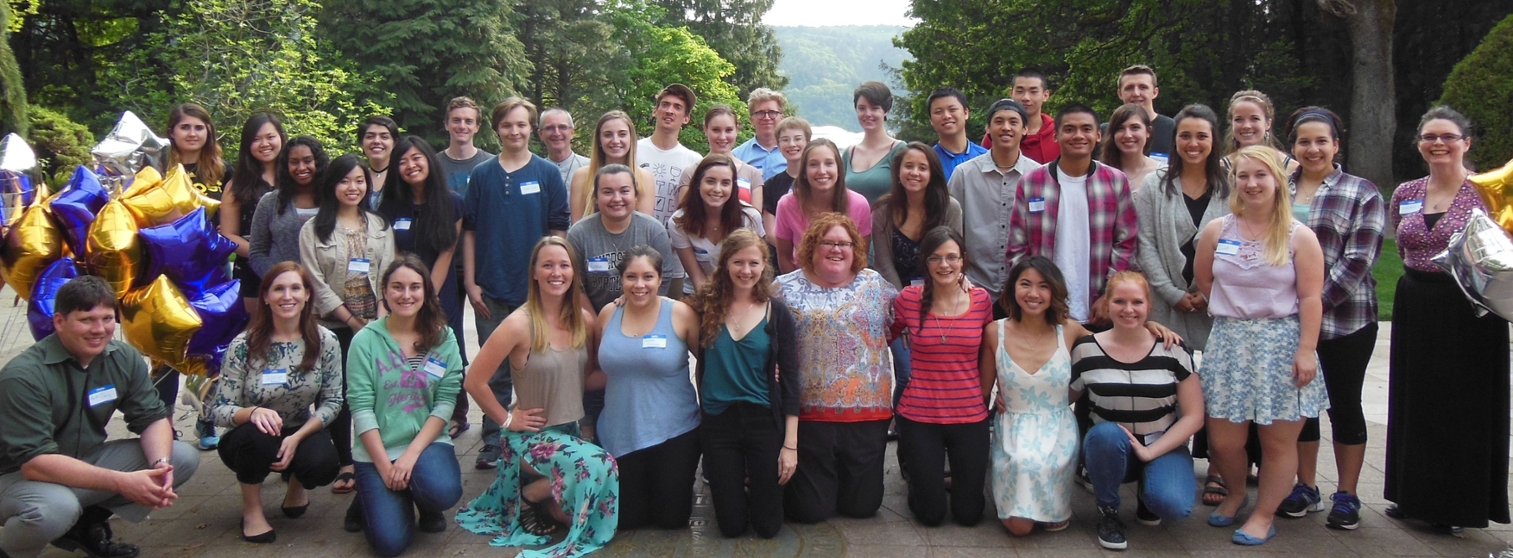Eddie Contreras
 Current Position: Assistant Provost for International Education, Diversity and Inclusion
Current Position: Assistant Provost for International Education, Diversity and Inclusion
Alma Mater: University of Texas at Austin
Major/Undergraduate field of study: History
What was it like being among the first in your family to go to college?
My mother was and is an inspiration for me. She earned an associates degree from our home-town community college, so she was the first person in our immediate family to get a college degree. With her experience, and with the support of both of my parents, I was able to succeed (eventually) and earn a bachelor's degree at the University of Texas at Austin. Because the four-year college experience was different for my parents, they didn't know about many aspects of college life, so I had to advocate for myself and learn on my own by trail and error. There were errors. I took five years to complete my degree and I transferred from a regional-state university in my hometown of El Paso, Texas to the state flagship university in Austin. I didn't know you could study abroad, so I never did, and I didn't know about parents day so I never invited them to these events. Learning by failing helped me build resilience and prepared me for the so-called real-world.
Are there any unique challenges you faced as a First Generation student?
Even with my mother's experience, and the support of both of my parents, navigating a four-year college was challenging. There were many aspects of college that were unfamiliar to me. Financing college was a major issue for my family since we came from a humble background. To save money in the early years, I attended the University of Texas at El Paso. While at UTEP, I worked two jobs to pay for my education while living at home. After saving up enough money, I transferred to the University of Texas at Austin. There I continued to work, but also learned that I could be eligible for loans. I missed out on many things because I worked, but I also gained valuable skills. One aspect of college life that I totally missed out on was studying abroad. Between delivering pizza, working in video arcades, serving as a proctor in residence hall computer labs, and maintaining my studies, I didn’t even have the time, or money, to think about leaving the country to study. Actually, I didn't even know one could get scholarships to do such things. I was lucky because I had a bi-cultural heritage, but I was not exposed to the wider world. In our family, the way most relatives had seen the world was through military service-- those were typically men who had been drafted to war. We often spoke Spanish because of our familial ties to Mexico, and we connected with our heritage in many ways through daily life on the US/Mexico border; however, we also identified as Americans. As an undergraduate, I began to learn about the world in classes, but it wasn't until graduate school that I learned first-hand what it meant to leave the country and witness life abroad.
Do you have any advice for FGEN students at UP that are facing challenges?
First and foremost, ask for help. Ask the FGEN office, ask your professors, and the staff. Be sure to ask for help. Next, build your network. Connect with other FGEN students and other staff and faculty who may or may not be FGEN. The more people you know, and who know you, the better chances of your success. Finally, find meaning in the classroom and beyond. Follow your academic bliss in the courses that give you the most meaning and joy. This is an important way to connect to the material in a way that moves beyond book-learning. Do this by studying abroad in your field, finding research opportunities in subjects you love, and engaging with the faculty members who are inspriging. Additionally, find meaning in a co-curricular experiences such as club activities, service, and hall activities.
Did a mentor play a role in your FGEN experience? How so?
Two faculty members stand out. One professor at UTEP named Ernesto Chavez was amazing. He taught history and his course on Chicano Studies blew my mind. He took an interest in me and he suggested that I would be better off if I transferred from the University to another institution. He knew I wanted to earn a doctorate and he kindly taught me that I would be on stronger footing at a larger research university. The other faculty member, named Cynthia Talbot, was also a history professor who was equally inspiring in the classroom. Beyond teaching the history of ancient India, Dr. Talbot shared with me information about federal funding and scholarships for students studying less commonly taught languages like Hindi, Urdu, and Sanskrit. She knew I had an interest in these languages and explained to me how to apply. Thanks to her, my first study abroad experience and my entire master's degree was funded.
How do you feel your experience prepared you, both professionally and personally?
Living a life of firsts when you are younger prepares you for living a life of challenges when you are older. This is not to say that each of you will face challenges, but each of you will be better capable of meeting this challenges for the skills you are forced to develop now. You'll be resilient, you'll demonstrate your grit, you'll learn how to self-advocate, you'll understand the importance of mentors, and you'll be mindful of the need to help others. These are all things that are useful in the so-called real world.
Connect with Eddie

 Current Position: Assistant Provost for International Education, Diversity and Inclusion
Current Position: Assistant Provost for International Education, Diversity and Inclusion